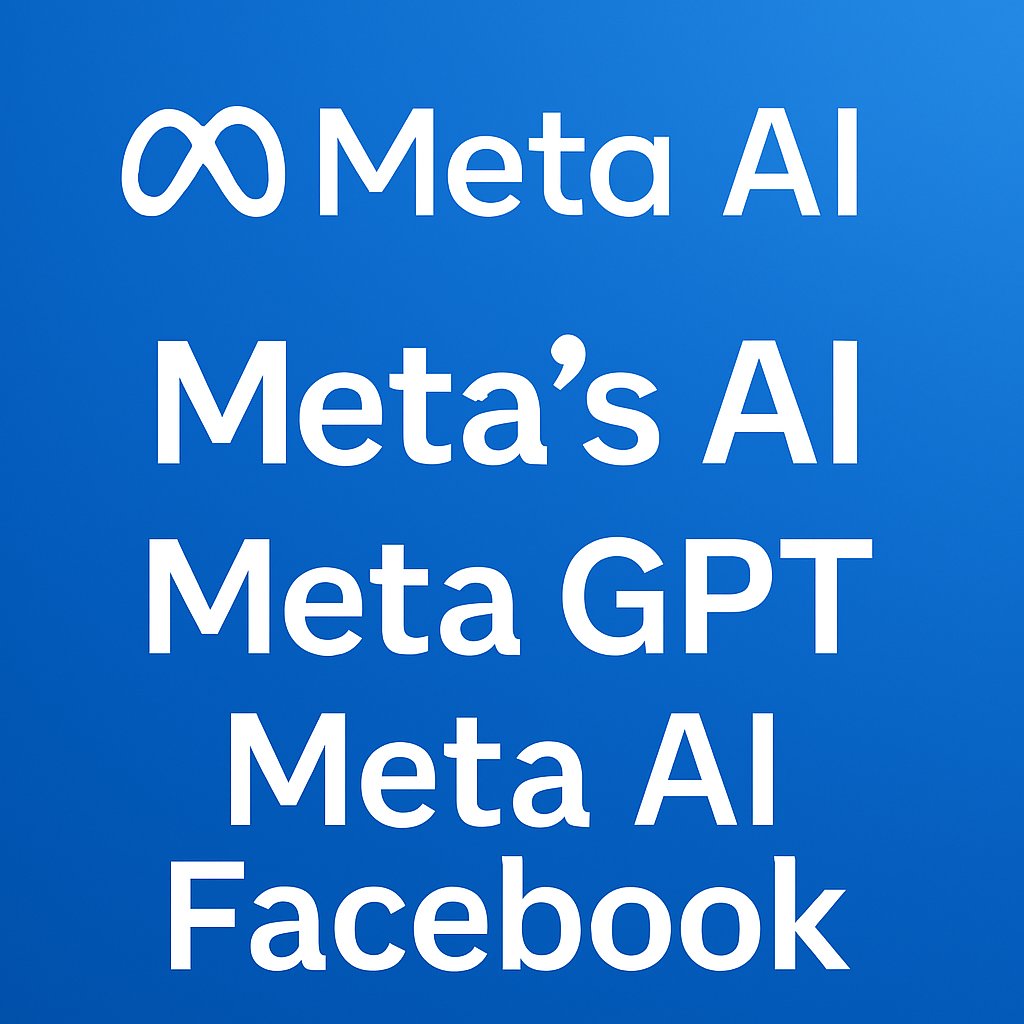Meta AI: The Future of Artificial Intelligence by Meta

Introduction
In the era of rapid digital transformation, artificial intelligence (AI) has become one of the key drivers of modern technology. Among the leading companies in this field, Meta (formerly known as Facebook) stands out with its massive investments in AI, particularly through its specialized division Meta AI. The company aims to develop advanced AI technologies that enable users to interact with intelligent systems in more realistic and efficient ways, enhancing the user experience across its various platforms.
What is Meta AI?
Meta AI is a dedicated division within Meta that focuses on AI research and the development of various applications. This includes the creation of large language models (LLMs), data analysis, machine learning, and the application of AI in virtual and augmented reality. Meta AI relies on advanced algorithms and deep neural networks to build AI systems that are smarter and more adaptable to user needs.
How Does Meta AI Work?
Meta AI leverages advanced technologies such as:
- Generative Adversarial Networks (GANs): Used to create realistic images and videos, applied in areas like image enhancement and creative content generation.
- Natural Language Processing (NLP): Improves AI’s ability to understand human language accurately, enabling applications such as automatic translation and intelligent assistants.
- Reinforcement Learning: Develops models capable of self-learning and decision-making based on past experiences.
- Deep Learning: Analyzes vast amounts of data to identify patterns and enhance user experiences.
Meta’s AI: Meta’s Vision for Artificial Intelligence
When referring to Meta’s AI, we talk about all AI projects developed by Meta, which include:
- Data analysis and machine learning: Enhancing search and discovery within Meta’s platforms.
- Developing personal AI systems: Such as intelligent assistants that provide a more personalized user experience.
- Improving security and monitoring: Through AI technologies that help detect harmful and unwanted content.
Meta GPT: A Powerful Language Model by Meta
Meta GPT is an informal term referring to Meta’s AI language models, such as Llama, which compete with models like ChatGPT from OpenAI. These models are designed to improve human interaction, understand natural language more deeply, and be used in applications such as virtual assistants, intelligent content creation, and instant customer support.
Meta AI Facebook: How AI Enhances Meta’s Platforms
Meta integrates AI technologies across all its products, including:
- Facebook: Enhancing user experience by organizing content, detecting fake news, and analyzing user interactions.
- Instagram: Improving content recommendations, filters, and smart editing tools.
- WhatsApp: Supporting intelligent interactions such as automated responses and instant translation for seamless global communication.
- Meta Quest (formerly Oculus): Developing virtual reality experiences using AI to provide more interactive environments.
Who are Meta AI’s Competitors?
Meta AI faces strong competition from several major technology companies, including:
- OpenAI: The developer of ChatGPT and DALL·E, one of the strongest players in generative AI.
- Google DeepMind: Creator of advanced AI models like Gemini, focusing on AI research in medicine and robotics.
- Microsoft AI: Investing in OpenAI and providing powerful AI solutions through Azure AI.
- Anthropic: Developer of AI models like Claude, emphasizing safety and reliability in AI.
- Amazon AI: Offering advanced AI services via AWS, used in applications like Alexa and cloud data analysis.
How to Follow and Engage with Meta AI?
To stay updated on Meta AI and its developments:
- Follow Meta AI’s official blogs and reports to learn about the latest innovations.
- Use Meta’s AI applications such as Llama to experience their advanced technologies.
- Participate in AI workshops and training programs offered by Meta for developers and researchers.
- Join open AI communities to discuss the latest advancements and interact with experts.
Challenges Facing Meta AI
Despite its rapid progress, Meta AI faces several challenges, including:
- Privacy and security concerns: Growing concerns over how personal data is used to train AI models.
- AI bias: The risk of bias in AI models due to the data they are trained on, which may affect decisions and recommendations.
- Regulations and laws: Governments and regulatory bodies impose strict rules on AI usage, impacting its development and deployment.
Conclusion
Meta AI represents the future of artificial intelligence in the digital world, as Meta continues to develop cutting-edge technologies to enhance user experiences across various fields. With advanced language models like Meta GPT and deep integration with its platforms, Meta remains at the forefront of AI innovation, competing with major tech giants. As these technologies evolve, AI will become an integral part of our daily lives, unlocking new possibilities for the future.
Keywords:
Meta AI, Meta’s AI, Meta GPT, Meta AI Facebook, Artificial Intelligence, Meta, Facebook, Large Language Models, Machine Learning, AI Competition, OpenAI, Google DeepMind, Microsoft AI, Anthropic, Amazon AI, Virtual Reality, Data Analysis, Deep Learning.




